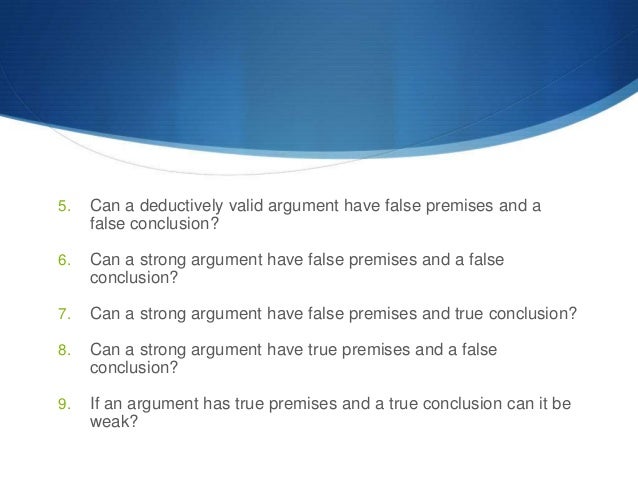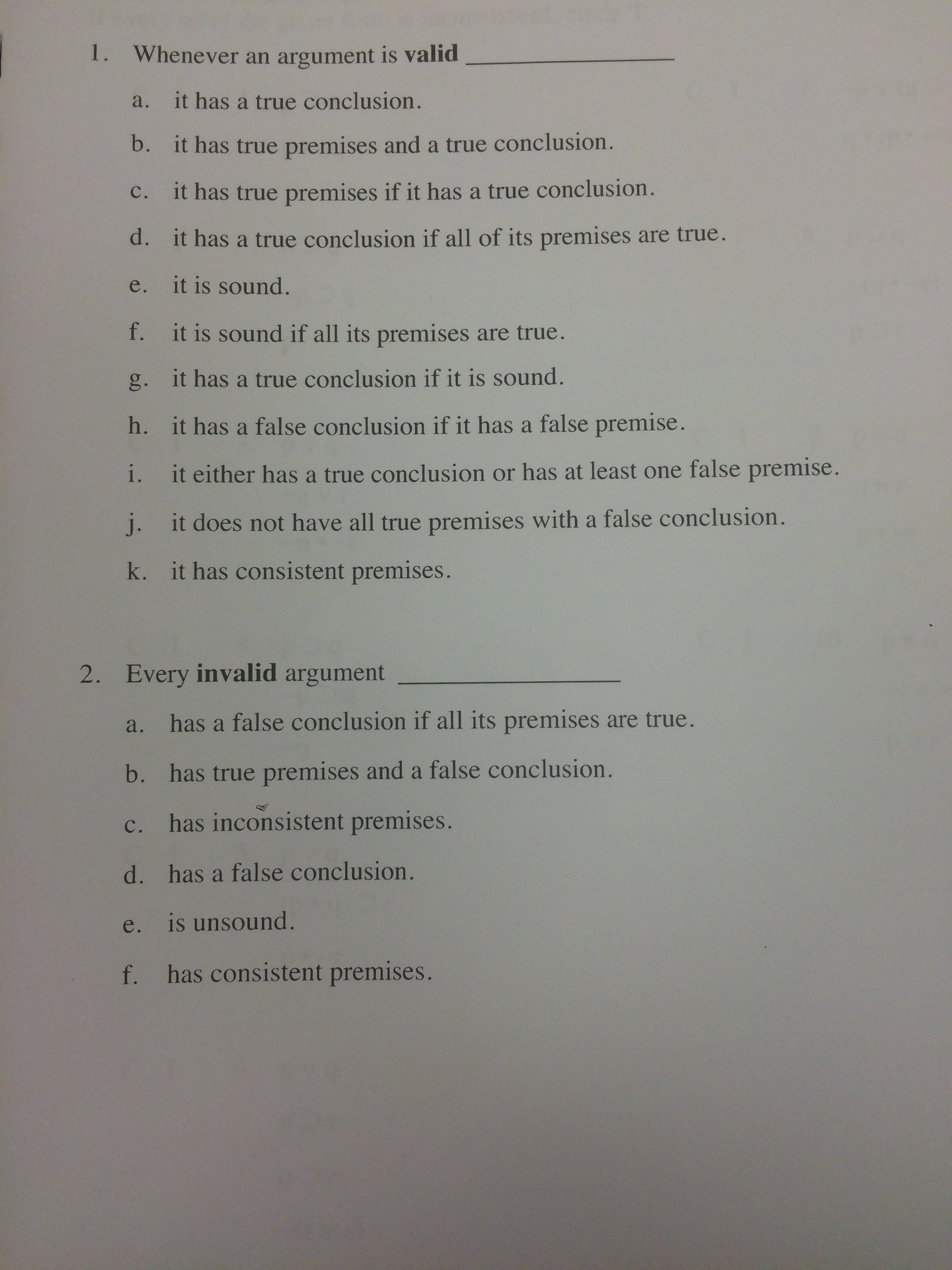

Or let us say that Premise 2 is false, because there isn't actually a dog barking nearby. Let us say, for example, that Premise 1 is false, because the cat isn't at all bothered by dogs barking, and will go outside regardless. It is very important to recognise that the argument remains valid even if some or all of the premises are actually false. If it is true that the cat won't go outside when a dog is barking nearby, and also true that there is a dog barking nearby, then we cannot avoid the truth of the conclusion that the cat won't go outside. The argument given above is valid, because if the two premises are both true, then the conclusion must be true. That is, an argument is valid if, when all the premises are true, the conclusion is necessarily true.

An argument is valid if the truth of the conclusion follows from the truth of the premises. Premise 2: There is a dog barking nearby. For example: - Argument 1 Premise 1: If there is a dog barking nearby, the cat won't go outside. The set of claims are the premises of the argument, and they are intended to establish the truth of the conclusion. An argument is a set of claims intended to establish the truth of another claim. So, Shamu is a whale.First, let's be clear what an argument is. For example, the following is a deductive argument because I am claiming the conclusion must follow if the premises are assumed true: All whales are mammals. What is an example of deductive and inductive arguments?ĭeductive and inductive refer to how the arguer is claiming the premises support the conclusion.

Sully used the general factual premise that she drives a blue Honda to search for her specific car. It uses deductive reasoning to arrive at a conclusion. Keeping this in view, what is an example of a deductive argument?Ī deductive argument is a type of logical argument that begins with a factual premise such that the conclusion you want to reach must be true. So, validity is more about the FORM of an argument, rather than the TRUTH of an argument. Here's an example of a valid argument: It only says that IF they are true, then the conclusion must follow. Subsequently, question is, what is an example of a valid argument? It is IMPOSSIBLE for the conclusion to be false if the premises are true. Otherwise, a deductive argument is said to be invalid. A deductive argument is said to be valid if and only if it takes a form that makes it impossible for the premises to be true and the conclusion nevertheless to be false. (Conclusion) Therefore I took an umbrella.Ĭonsidering this, what is a valid deductive argument? Thus, if all of the premises are true, the conclusion must be true. A valid deductive argument is one where its logical form makes it impossible for the argument's premises to all be true when the conclusion is false and vice versa.


 0 kommentar(er)
0 kommentar(er)
